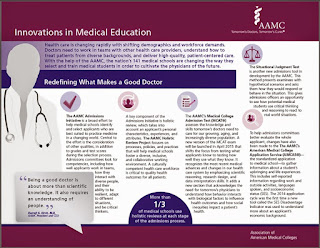3 Additional Details To Pay Attention To On Interview Day

The medical school application cycle follows a process that is made up of several different phases. Now that applicants are submitting secondary applications from individual schools, we've transitioned into the interview phase. The medical school interview season for most medical schools across the nation generally runs from September to March, give or take. Now full steam ahead into interviews, each school has begun the process of hosting hundreds of applicants. While this portion of the process is where colleges really get to gauge who they believe are the best fit for their school before making final decisions, applicants are also served an opportunity to get a better feel for where they will possibly train for the next four-plus years. During interview season at the Michigan State University College of Human Medicine (CHM), applicants do multiple mini interviews (MMI) with various people connected to the medical. Beyond the MMI, prospective students are also paired w...





